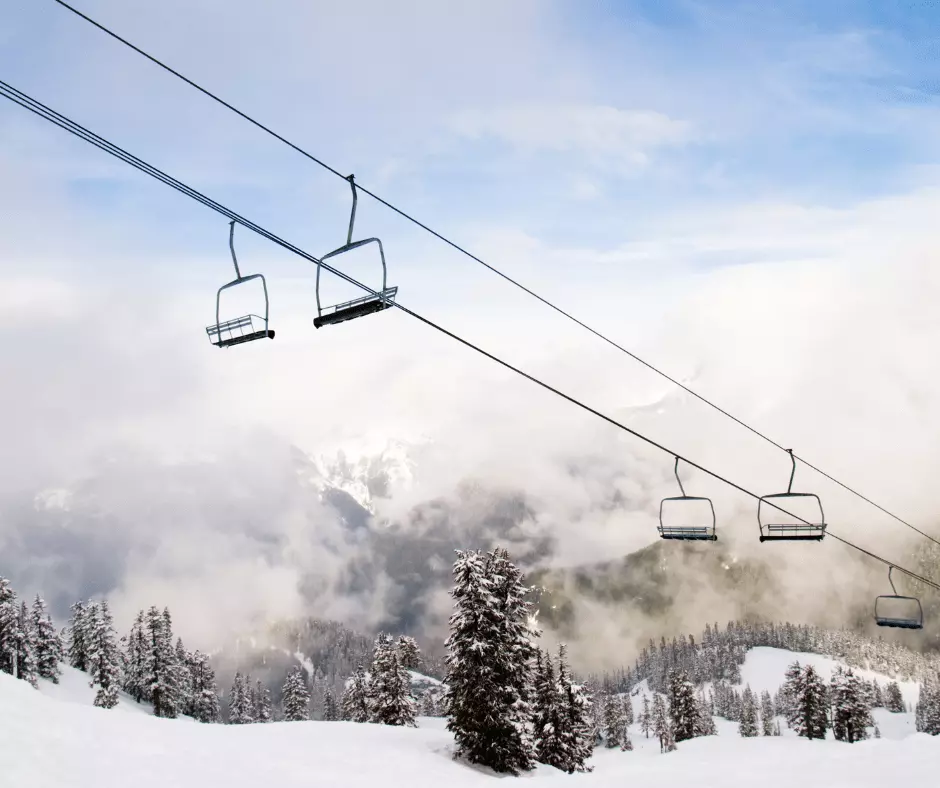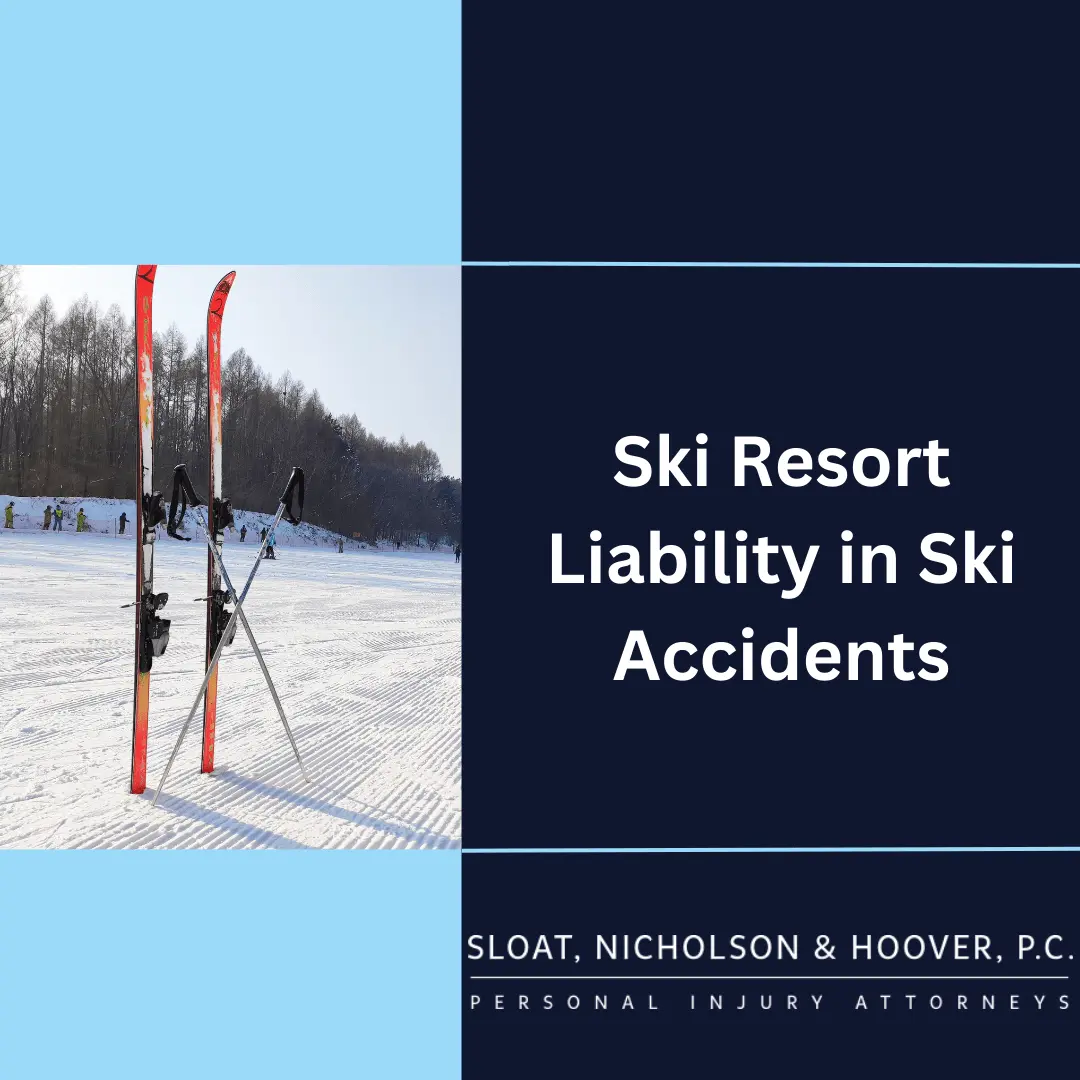
Can You Sue a Ski Resort for an Accident In Colorado?
Skiing and snowboarding are fun and exhilarating sports—but they can be dangerous. Skiers know they run the risk of getting hurt if they fall. But skiers and snowboarders could have the right to file a claim for compensation if someone or something else causes their injuries.
In Boulder, the ski accident lawyers with Sloat, Nicholson & Hoover, P.C., have over 100 years of combined legal experience handling accident cases. We understand the complexities of suing a ski resort, and we know how to strategize a strong case so you can obtain full and fair compensation.
Can I Sue a Ski Resort for an Injury?
The ski industry in Colorado has a massive impact on the state’s economy. Skiing draws nearly 12 million tourists to Colorado annually and generates almost five billion dollars in revenue. The industry also provides 46,000 year-round jobs amounting to $1.9 billion in income for residents. Accordingly, the Colorado legislature enacted the Ski Safety and Liability Act to protect skiers and ski resorts.
This law goes to great lengths to protect ski resorts from legal liability for skier injuries. However, the law also imposes significant responsibilities on ski resorts to protect customers from dangers not inherent in skiing. Indeed, the statute indicates that violating any legal requirement of the Act constitutes negligence and subjects the negligent party to civil liability.
Were you injured due to the negligence of a ski resort in Colorado?
Contact Sloat, Nicholson & Hoover, P.C today at 303-447-1144
What Are the Dangers and Risks Inherent to Skiing?
Typically, a skier or snowboarder cannot sue a ski resort for falling due to any danger that is inherent in the activity. Colorado Statutes § 33-44-112 expressly prohibits a skier from recovering compensation from a ski resort for injuries that result from the inherent risks of skiing.
According to Colorado’s Ski Safety and Liability Act, the inherent dangers and risks of skiing include the following:
- Variable weather conditions,
- Variable surface conditions,
- Dangers lurking beneath the surface of the snow,
- Bare spots,
- Signs,
- Towers,
- Water pipes,
- Hydrants,
- Elevation changes, and
- Terrain changes.
Additionally, every skier must ski according to their ability, maintain a safe speed, avoid colliding with other skiers, and obey all signs and warnings.
Limited Immunity for Ski Resorts
Ski resorts try to limit their liability by requiring skiers to sign a liability waiver before hitting the slopes. But don’t assume that you cannot sue under any circumstances if you signed a waiver. Always check with a lawyer because you might still be able to sue the resort for damages if you get hurt.
A variety of people could be responsible if you sustain injuries on the slopes. Skiers can sometimes file a claim against the resort, equipment manufacturer, other skiers, and equipment operators.
Let’s consider an example of the limited liability afforded to ski resorts. The Act states that skiers cannot sue a ski resort if they collide with another skier because—as it relates to the resort—collisions with skiers are an inherent risk of skiing.
However, skiers could be liable to each other for acts or omissions that cause an injury, including collisions. In an action filed by one skier against another, the law states that a skier does not assume the risk of a collision with another skier. Under these circumstances, colliding with another skier is not an inherent risk of the activity.
So you can see where the law provides resorts with some protection from liability. Therefore, you have no recourse against the ski resort if you fall and break a leg because you don’t know how to ski well.
However, if an out-of-control or careless skier causes you to crash and break your leg, you might have a claim against that person. One of our lawyers can assess the facts of your case and advise you on whether or not you have a valid claim.
When Can I Sue a Ski Resort for an Injury in Colorado?

Ski resorts must strictly adhere to the requirements of Colorado’s Ski Safety and Liability Act. This law places numerous legal duties on ski resorts to protect their guests from hazards not inherent in the sport. Some of the legal responsibilities include the following:
- Maintaining a sign system that skiers and tramway users easily understand,
- Posting signs for safe loading and unloading of chairlifts,
- Inspecting all trams for defects,
- Marking ski area boundaries,
- Equipping grooming vehicles with lights,
- Placing notices at trailheads if grooming equipment is in use on a trail that is open to the public,
- Keeping parked grooming vehicles and equipment visible to trail users, and
- Ensuring that man-made hazards like downed wires and other artificial obstructions are marked.
If the resort failed to do any of the above, you might have a valid claim against the resort. Our ski accident lawyers have the experience needed to identify all parties who might be liable for your injuries.
Ski Lift Accidents
Ski lift accidents occur most often during loading and unloading. Skiers have a duty to obey signs and to only use the lifts if they have the physical dexterity to load and unload safely. Ski resorts have a duty to maintain trams, chairlifts, J-bars, and other modes of transportation, so they are in good working condition.
Moreover, ski resorts have a duty to hire competent employees. Ski lift operators must be vigilant at all times to help prevent injury. You could have a claim for negligent hiring or negligent retention of an employee if you suffer an injury caused by negligent staff.
What Damages Can You Sue a Ski Resort For?
Colorado personal injury law allows injured claimants to recover for injuries caused by the ski resort’s negligence. Examples of damages you might be eligible for include:
- Future medical expenses,
- Ambulance fees,
- Prescription medication costs,
- Surgical costs,
- Physical therapy expenses,
- Lost wages,
- Future loss of earnings, and
- Pain and suffering.
Your family members could have legal claims against the ski resort as well.
Have a Claim Against a Colorado Ski Resort? Contact Us Today
Our experienced ski accident attorneys understand how much a ski accident can upend your life. You are hurt, and you might not be sure how long it will take to heal. You might also be unable to work while you’re recovering, which means you don’t know how you will pay your bills.
Let us help you get the money you need. We can take this burden off of you while strategizing the strongest possible case for compensation. We have recovered over $230 million for our injury clients, so let us put our knowledge and experience to work for you. Contact us today at 303-447-1144 to learn more.
Related Articles
Articles and information to keep you up to date on personal injury news.
Podcast Feature: Colorado Trial Lawyer Connection
John Duguay - Triumph through Client Connection In a recent episode of the Colorado Trial Lawyer Connection podcast, hosted by Keith Fuicelli, Boulder-based personal injury lawyer John Duguay
Read More
What Damages Are Recoverable from a Dog Bite?
If you've suffered a dog bite injury, you may wonder what damages you can recover. Typically, damages for a dog bite claim include economic and non-economic losses, and
Read More
What Happens When You Get Hit by a Drunk Driver in Colorado?
When hit by a drunk driver in Colorado, it's crucial to take immediate steps, including calling 911, seeking medical attention, and gathering evidence such as photos and witness
Read More
